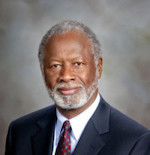Many bigots in America are enraged about the possibility that the history and nature of racism might be taught in high schools and colleges. At the same time, the United Nations is accusing the United States of racism against people of African descent and calling on the United States and several other countries to "stop denying and start dismantling racism."
Groups have been petitioning the U.N. about the violation of the human rights of African Americans a long time. Soon after its founding, the U.N. established the Commission on Human Rights with Eleanor Roosevelt as its leader. Shortly after that, Herbert Aptheker and the Negro National Congress submitted a petition to the U.N. concerning the violation of the human rights of African Americans. They received a reply that said the Commission lacked authority to intervene in domestic matters.
Inspired by that effort, the NAACP led by W.E.B. Dubois submitted a more comprehensive petition—96 pages—noting in detail the human rights abuses suffered by African Americans. DuBois campaigned for the petition, asking each delegation and the U.N. Secretary General to welcome the petition, which was eventually received but buried, as the Truman administration undermined the new human rights efforts at the U.N., fearing that the American double standard would be exposed. The country was violating the human rights of African Americans daily while proclaiming that in the new world of the cold war, the U.S. would be the moral leader.
Du Bois also placed the petition in the global context, claiming that saving democracy abroad required keeping it at home. He demanded a world hearing on the issue to persuade the U.S. “to be just to its own people.”
Du Bois published the petition in 1947, a year before the adoption of the Universal Declaration of Human Rights and almost 20 years before the drafting of the International Convention on the Elimination of All Forms of Racial Discrimination.
In 1951, the Civil Rights Congress presented a 200-page petition to the U.N. that they produced in a book, “We Charge Genocide: The Historic Petition to the United Nations for Relief From a Crime of the United States Government Against the Negro People.”
The document proclaimed:
“Once, the classic method of lynching was the rope. Now it is the policeman’s bullet. To many an American, the police are the government, certainly its most visible representative. We submit that the evidence suggests that the killing of Negroes has become police policy in the United States…”
The petition received worldwide attention, much of it positive, but due to the influence of the United States the U.N. never acknowledged the document.
Malcolm X also wanted the U.N. to address the plight of African Americans. At the time of his assassination, Malcolm X was moving to internationalize the civil rights movement. Specifically, he was arguing that as long as we discussed the plight of Black folk as a matter of civil rights, we would be limited to what the U.S. government might decide to do, which we should not trust. Consequently, he would take the issue to the United Nations as a matter of human rights, thus an international issue. Some observers believe that objective was instrumental in Malcolm’s death.
In June of 2020, the Human Rights Council of the United Nations adopted a resolution supporting the
“Promotion and protection of the human rights and fundamental freedoms of Africans and people of African descent against excessive use of force and other human rights violations by law enforcement officers.”
During the national and international Black Lives Matters demonstrations last year, many Black parents of police victims and hundreds of civil society organizations appealed to the Human Rights Council to follow the resolution and investigate police killings of Black Americans. Thus, this report was prepared, aimed at other nations as well as the United States.
Importantly in its report the Human Rights Council provided a comprehensive definition of systemic racism.
“…[F]or the purposes of the present report, the concept of systemic racism against Africans and people of African descent, including as it relates to structural and institutional racism, is understood to be the operation of a complex, interrelated system of laws, policies, practices, and attitudes in State institutions, the private sector, and societal structures that, combined, result in direct or indirect, intentional or unintentional, de jure or de facto discrimination, distinction, exclusion, restriction or preference on the basis of race, colour, descent or national or ethnic origin.”
Conclusion of the report: “States [nations] should examine the extent and impact of systemic racism and adopt effective legal, policy and institutional measures that address racism beyond a summation of individualized acts.
• • •• • •
“
Wornie Reed is Professor of Sociology and Africana Studies and Director of the Race and Social Policy Research Center at Virginia Tech University. Previously he developed and directed the Urban Child Research Center in the Maxine Goodman Levin College of Urban Affairs at Cleveland State University (1991-2001), where he was also Professor of Sociology and Urban Studies (1991-2004). He was Adjunct Professor at the Case Western Reserve University School of Medicine (2003-4). Professor Reed served a three-year term (1990-92) as President of the National Congress of Black Faculty, and he is past president of the National Association of Black Sociologists (2000-01).
This column first appeared online at What the Data Say and is shared here by permission.













